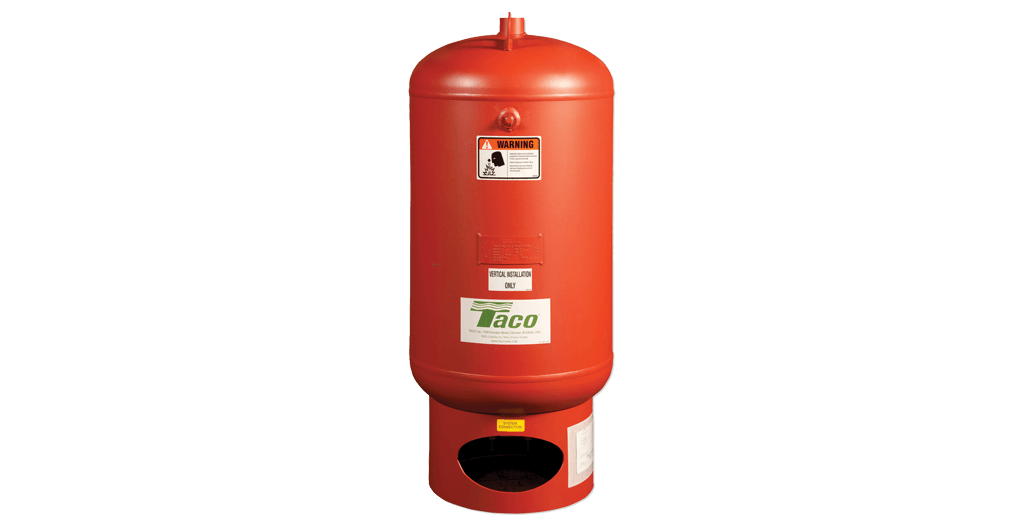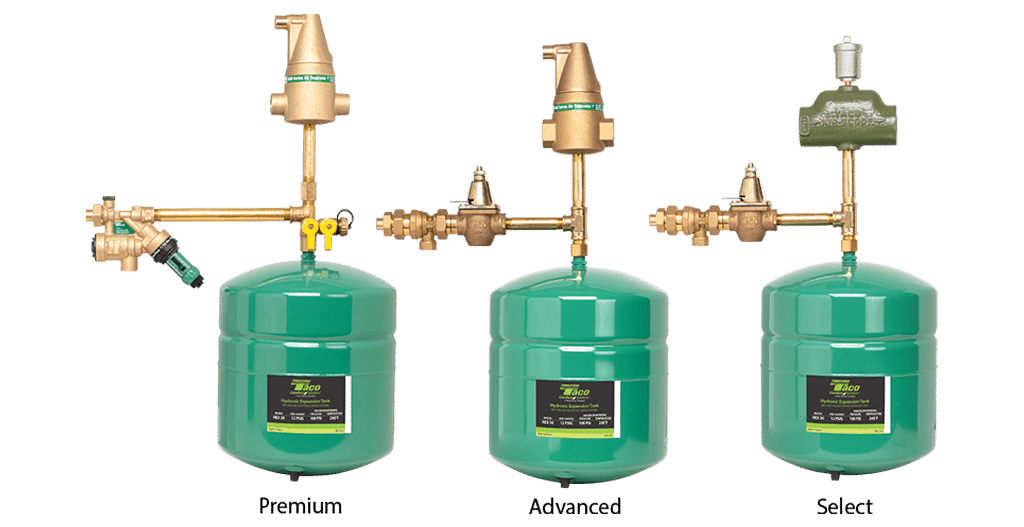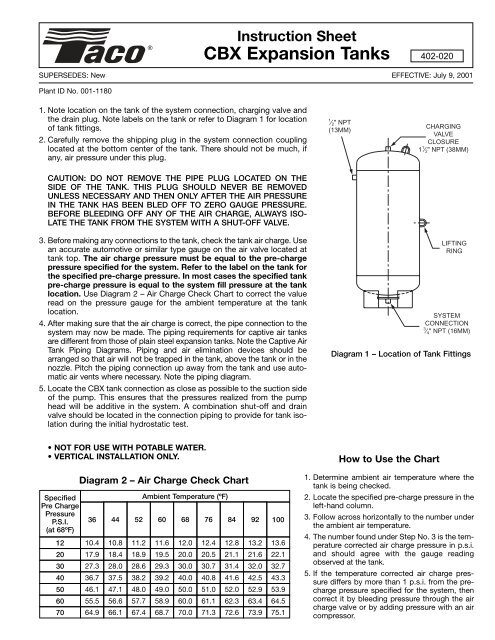Buffer tanks are often employed within hvac systems to provide additional system fluid volume in order to prevent short cycling of heating or cooling apparatus.
Taco expansion tank piping.
Taco ca expansion tanks are full acceptance captive air expansion tanks that provide separation of air and water.
Taco ca series expansion tanks are designed to solve a long time problem in the hydronics industry by utilizing a butyl rubber bladder to permanently separate the air charge from the system fluid in the expansion tank.
In old style non bladder type tanks the air to water interface allowed air to be absorbed back into the system fluid and.
Ps series plain steel expansion tanks are designed constructed and tested to asme section viii div.
Tough durable and long lasting.
Saddles are available for support from 14 36 diameters.
Pax expansion tank piping diagrams recommended installation for heating system or chilled water applications recommended installation for nsf ansi 61 g applications for factory contact on taco fall river heat transfer products please call 508 674 5353.
Taco cx series expansion tanks are designed constructed and tested to asme section viii div.
The expansion tank selection program offers the options of either u s.
Piping and air elimina.
Clicking on the fluid type drop down menu will allow the user to make expansion tank selections based on the fluid types.
The air cushion plain steel tank uses a tank filled with water and an air cush ion at the top of the tank for water to expand into as it is heated.
Taco offers these tanks in sizes from 50 gallons up through 3000 gallons across 22 tank volumes.
The pipe connection to the system may now be made.
English or si system international units.
Note the captive air tank piping diagrams.
The connection point from tank to system represents the point of no pressure change.
Computerized product selection helps you choose the expansion tank that is just the right fit for your application requirements.
Some general notes regarding this piping are listed below.
In a diaphragm tank the air is held captive by the use of a diaphragm with the expanded water being held on one side of the diaphragm and air on the other.
Installation of the tank prior to adjusting the pre charge can result in incorrect pre charge readings.
Piping typical tank to system and air vent piping are illustrated by figures 1 thru 6.
All fabrication is done in house to assure a high level of quality.
This means that the expansion tank must be connected as close as possible to the suction side of the system.
Diaphragm tanks use a diaphragm to permanently separate the air and water.










